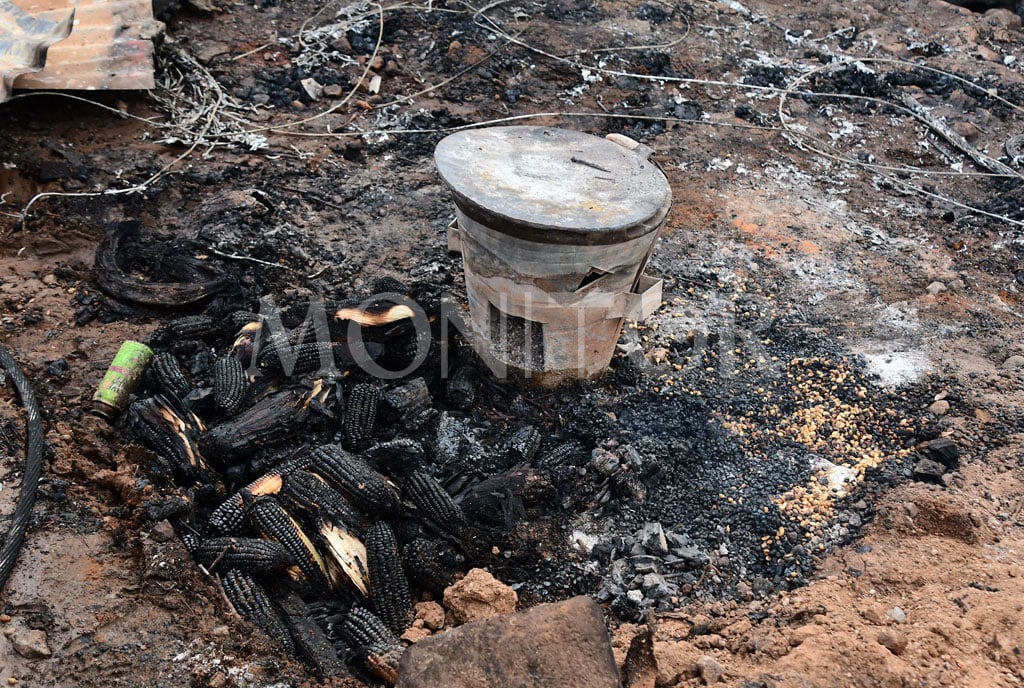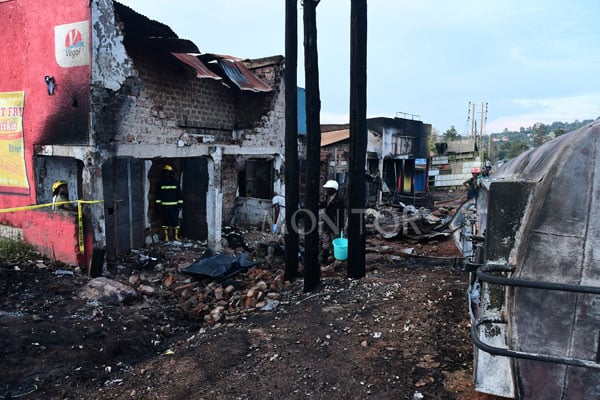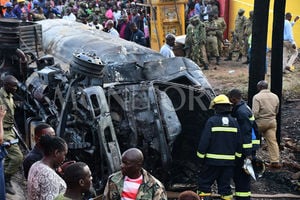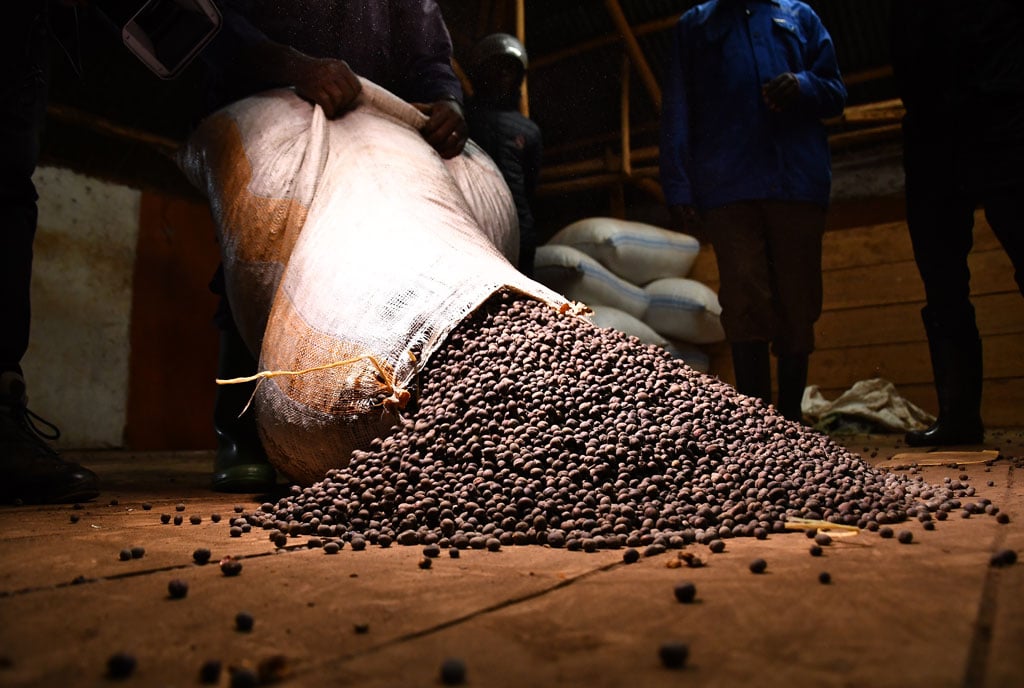
Fuel tankers line up in Busia town as they wait for border clearances. Photo | AWORI DAVID
A fuel tanker driver, who has for the past four years been ferrying gas across borders from Kenya to various destinations in Uganda and other neighbouring states, has theorised that the “human factor” is behind most road crashes.
Mr Wilson Mutebi’s assessment comes barely two weeks after a fuel tanker went up in flames at Kigogwa Trading Centre along the Kampala-Gulu Highway in Wakiso District, killing 28 people and injuring scores.
The employee of Lake Oil Company, a fuel transport company that operates a fleet of 680 tankers in Kenya and Uganda, said the majority of the drivers are unqualified to drive such automobiles.
“Because some companies want cheap labour, they take on drivers who barely have any skills and experience in driving such vehicles. People are picked from driving pick-ups and given fuel tankers to drive without any knowledge and experience,” Mr Mutebi says.
The driver who was tracked at the Busia border while en route to Eldoret in Kenya to load fuel, said such unqualified and inexperienced drivers hardly make quick decisions to avoid accidents in case of any emergencies.
“Because of the long distances, many drivers resort to drugs and alcoholism to beat fatigue and sleep, but in the process end up in slumber while driving and subsequently lose control of their trucks," he noted.

Wilson Mutebi, truck driver.
According to Mr Mutebi, accidents involving fuel tankers are minimal in neighbouring Tanzania because their police are strict and scarcely allow an alcohol or drug-fueled driver on the road, which he said is not the case in Uganda.
“You get a driver with his eyes nearly popping out because of fatigue and feeling sleepy, but traffic police only wave him on and that is why accidents happen,” Mr Mutebi said, adding that in Tanzania, a driver would be arrested for having bottles of alcohol or khat in his car.
In addition, Mr Mutebi notes that the majority of the fuel tankers have remained on the road despite being in a poor mechanical condition, including either having a defective braking system, poor lighting, or worn-out tyres.
“Instead of the traffic police checking the qualification of the drivers and ensuring that their vehicles are in good mechanical condition, they are instead busy checking who has not paid the express penalty receipts."
“I think a fuel tanker must have at least four fire extinguishers just in case of a fire outbreak, but this is not the case with most trucks operating in the country. Police need to do a lot to ensure that vehicles on the road are in a safe mechanical condition and stop unqualified and drug-fueled drivers on our roads. If this can be implemented, accidents will reduce,” added Mr Mutebi.
He hailed Fika Salaama operations by Uganda Police, saying it helped to rid out unqualified drivers, and vehicles in poor mechanical condition.

Wislon Mutebi , drives his fuel tanker along Busia Kisumu road.
While the Police are continuing with their investigation into the Kigogwa fire incident, which is thought to have originated from a nearby stove, Mr Mutebi says that incident should have been avoided if the fuel tanker was in good mechanical condition.
“The driver of that ill-fated fuel truck lost control as he avoided hitting an obstacle; but because the truck had defective brakes, he could not stop and that is how it overturned," he observed.
Mr Kibe Mungai, a Kenyan fuel tanker driver who has been in the business for 15 years, says people who rush to the scene to siphon fuel whenever a fuel tanker overturns are the major cause of the fire.
Like Mr Mutebi, Mr Mungai, too, thinks bystanders should take extra caution and follow the guidelines and road signs if accidents are to be reduced.
Mr Rogers Kagumba, the fleet manager for Lake Oil Company, says their organisation only recruits qualified drivers because of the “sensitive cargo” they transport.
“Petrol, aviation fuel and gas which we transport is like an atomic bomb waiting; so, you can't entrust an inexperienced driver to handle it,” he said, adding that the drivers recruited undergo continuous job refresher courses and compulsory health checks.
“Diabetes usually strikes and destroys eyesight, so we have to check and ensure that all the drivers who get on the road are healthy enough to drive our fuel tankers, and also emphasise that they are counselled and paid their salaries and allowances on time for purposes of managing stress.
Mr Robert Mukombozi, a boda rider, says congestion caused by the many trucks along border points such as Busia and Malaba need to be checked.







